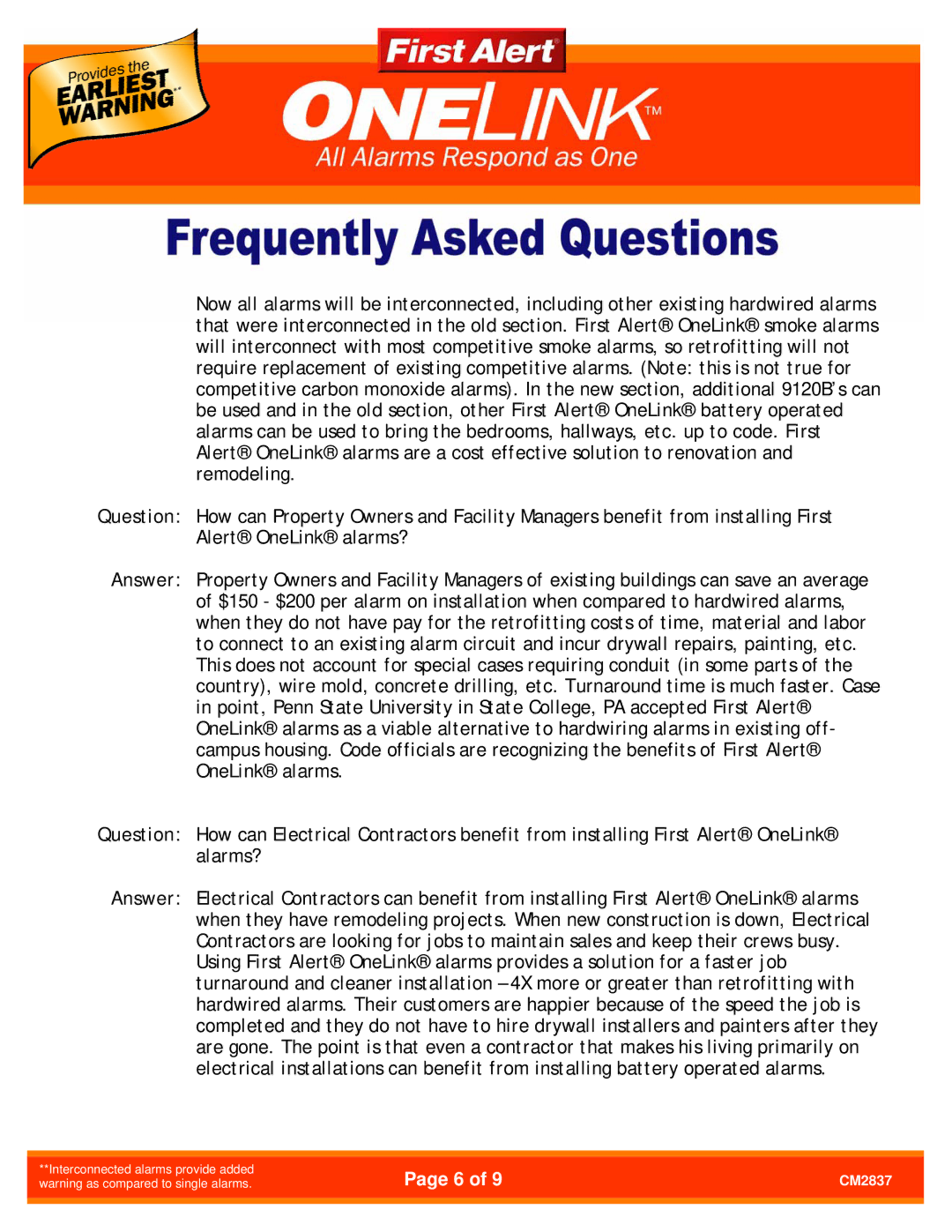
Now all alarms will be interconnected, including other existing hardwired alarms that were interconnected in the old section. First Alert® OneLink® smoke alarms will interconnect with most competitive smoke alarms, so retrofitting will not require replacement of existing competitive alarms. (Note: this is not true for competitive carbon monoxide alarms). In the new section, additional 9120B’s can be used and in the old section, other First Alert® OneLink® battery operated alarms can be used to bring the bedrooms, hallways, etc. up to code. First Alert® OneLink® alarms are a cost effective solution to renovation and remodeling.
Question: How can Property Owners and Facility Managers benefit from installing First Alert® OneLink® alarms?
Answer: Property Owners and Facility Managers of existing buildings can save an average of $150 - $200 per alarm on installation when compared to hardwired alarms, when they do not have pay for the retrofitting costs of time, material and labor to connect to an existing alarm circuit and incur drywall repairs, painting, etc. This does not account for special cases requiring conduit (in some parts of the country), wire mold, concrete drilling, etc. Turnaround time is much faster. Case in point, Penn State University in State College, PA accepted First Alert® OneLink® alarms as a viable alternative to hardwiring alarms in existing off- campus housing. Code officials are recognizing the benefits of First Alert® OneLink® alarms.
Question: How can Electrical Contractors benefit from installing First Alert® OneLink® alarms?
Answer: Electrical Contractors can benefit from installing First Alert® OneLink® alarms when they have remodeling projects. When new construction is down, Electrical Contractors are looking for jobs to maintain sales and keep their crews busy. Using First Alert® OneLink® alarms provides a solution for a faster job turnaround and cleaner installation – 4X more or greater than retrofitting with hardwired alarms. Their customers are happier because of the speed the job is completed and they do not have to hire drywall installers and painters after they are gone. The point is that even a contractor that makes his living primarily on electrical installations can benefit from installing battery operated alarms.
**Interconnected alarms provide added warning as compared to single alarms.
Page 6 of 9 | CM2837 |
